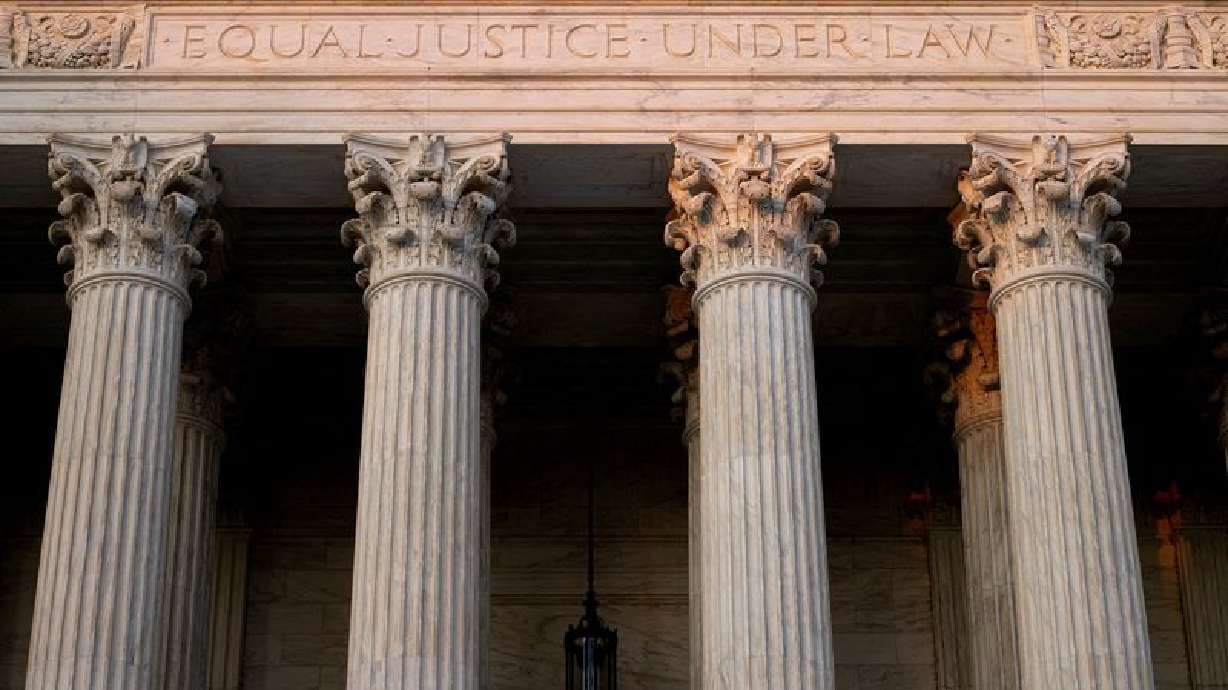
Supreme Court limits environmental reviews in Utah railway ruling
How did your country report this? Share your view in the comments.
Diverging Reports Breakdown
Supreme Court limits environmental reviews in Utah railway ruling
The 8-0 ruling overturned a lower court’s decision that had halted the project. The project was challenged by environmentalists and a Colorado county. Utah Republicans celebrated the decision, with Sen. John Curtis calling it “welcome news for Utah and America’s energy future” The case tested the scope of environmental impact studies that federal agencies must conduct under a law called the National Environmental Policy Act, enacted in 1970 to prevent environmental harms that might result from major projects.”The Uinta Basin Railway will power our economy by connecting rural Utah to more markets,” state Senate President Stuart Adams, R-Layton, said in a statement to KSL.com. “This project helps secure our state’s position as a global energy leader, delivering reliable, safe and affordable power for generations to come,” the governor added in a separate statement.. The Supreme Court heard arguments on Dec. 10 in the case, which has been closely watched by companies and environmental groups for how the ruling might affect a wider range of infrastructure and energy projects.
WASHINGTON — The U.S. Supreme Court dealt a setback to environmentalists on Thursday by allowing federal agencies to limit the scope of their review of the environmental impact of projects they regulate, as the justices bolstered a Utah railway project intended to transport crude oil.
The 8-0 ruling overturned a lower court’s decision that had halted the project and had faulted an environmental impact statement issued by a federal agency called the Surface Transportation Board in approving the railway as too limited in scope. The project was challenged by environmentalists and a Colorado county.
The ruling, authored by conservative Justice Brett Kavanaugh, was joined by four other conservative justices. The court’s three liberal justices filed a separate opinion concurring in the outcome.
A coalition of seven Utah counties and an infrastructure investment group are seeking to construct an 88-mile railway line in northeastern Utah to connect the sparsely populated Uinta Basin region to an existing freight rail network that would be used primarily to transport waxy crude oil.
Utah Republicans celebrated the decision, with Sen. John Curtis calling it “welcome news for Utah and America’s energy future” and Gov. Spencer Cox saying the justices “unanimously stopped an insane idea that doesn’t exist anywhere in the law.”
“For too long, litigious groups have weaponized environmental reviews to stall critical projects — oil, gas, wind, solar, nuclear and more,” Curtis posted.
“The Uinta Basin Railway will power our economy by connecting rural Utah to more markets, supporting job creation and energy production,” state Senate President Stuart Adams, R-Layton, said in a statement to KSL.com. “Utah already leads the nation with low energy prices, and this project helps secure our state’s position as a global energy leader, delivering reliable, safe and affordable power for generations to come.”
For too long, litigious groups have weaponized environmental reviews to stall critical projects — oil, gas, wind, solar, nuclear and more. –Sen. John Curtis, R-Utah
Rep. Mike Kennedy added that the law in question has been used to block growth in rural communities, saying the court decision “has empowered local and state governments to pursue development opportunities that directly benefit Utah residents.”
The case tested the scope of environmental impact studies that federal agencies must conduct under a law called the National Environmental Policy Act, enacted in 1970 to prevent environmental harms that might result from major projects. The law mandates that agencies examine the “reasonably foreseeable” effects of a project.
Kavanaugh wrote that agencies need only consider environmental effects of a project at hand and not the “effects from potential future projects or from geographically separate projects,” and that courts must offer agencies “substantial deference” regarding the scope of these assessments.
“NEPA is a procedural cross-check, not a substantive roadblock. The goal of the law is to inform agency decisionmaking, not to paralyze it,” Kavanaugh wrote.
The goal of the law is to inform agency decisionmaking, not to paralyze it. –Justice Brett Kavanaugh
The Supreme Court heard arguments on Dec. 10 in the case, which has been closely watched by companies and environmental groups for how the ruling might affect a wider range of infrastructure and energy projects.
Environmental reviews that are too broad in scope can add years to the regulatory timeline, risking a project’s viability and future infrastructure development, according to companies and business trade groups.
The Surface Transportation Board, which has regulatory authority over new railroad lines, issued an environmental impact statement and approved the railway proposal in 2021.
The Center for Biological Diversity and other environmental groups sued over approval, as did Colorado’s Eagle County, which noted that the project would increase train traffic in its region and double traffic on an existing rail line along the Colorado River.
Supreme Court arguments begin over environmental regulation of Utah oil railway plan A proposed western railroad expansion aimed at boosting crude oil production in Utah is coming before the Supreme Court in a case that could have wider effects on federal environmental regulation.
The Court of Appeals for the District of Columbia Circuit ruled in favor of the challengers in 2023, concluding that the environmental review inadequately analyzed the effects of increased oil production in the basin as well as downstream, where the oil would be refined.
Democratic former President Joe Biden’s administration had backed the railway coalition in the case, as did the state of Utah.
Fifteen other states supported the challengers. Colorado said its economy relies on outdoor recreation and that the project raises the risk of leaks, spills or rail car accidents near the Colorado River’s headwaters.
Conservative Justice Neil Gorsuch recused himself from the case after some Democratic lawmakers urged his withdrawal because businessman Philip Anschutz, his former legal client, has a financial interest in its outcome.
Contributing: Bridger Beal-Cvetko
